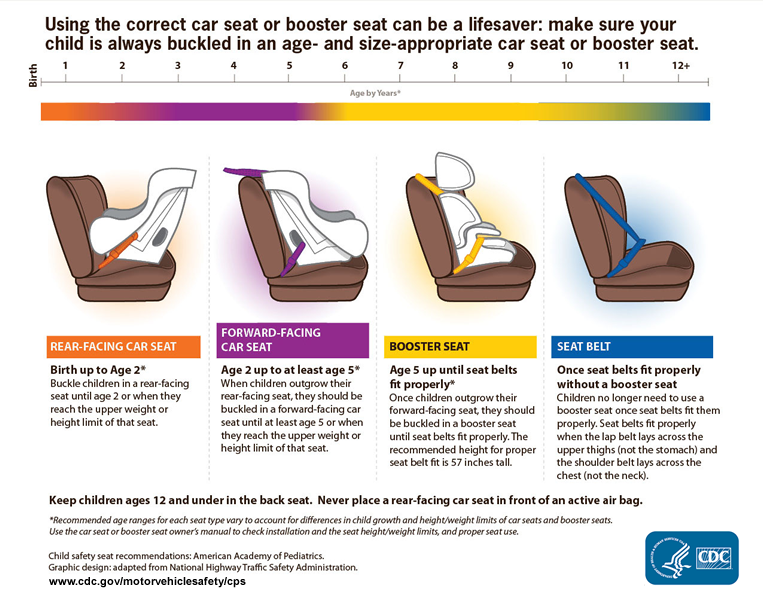Everything You Need To Know About Car Seat Laws in Missouri

When it comes to the safety of our most precious passengers, we’ve got to stay on top of car seat rules and regulations. Like many states, Missouri has established specific regulations to protect child passengers while riding in a motor vehicle. The Child Passenger Restraint Law of 2006 dictates that children under certain heights, weights, and ages must be protected by a child passenger restraint system, booster seat, or seatbelt. These laws might seem complicated, especially for new parents or caregivers, but it’s a responsibility that can make all the difference in the event of an accident.
In Missouri, children under four years old or weighing less than 40 pounds must be in an appropriate safety seat. Children between the ages of four and seven, who weigh between 40-80 pounds and are 4’9″ or shorter, can use a child safety seat or booster seat. Lastly, children that are heavier than 80 pounds and taller than 4’9″ can use a booster seat or seatbelt at the driver’s discretion. Violating the child passenger restraint law will result in fines, and using secondhand car seats is discouraged for safety reasons.
Keep reading to learn more about keeping kids secure on the roads in Missouri.

Missouri Seatbelt Laws
Once children have outgrown their booster seats and meet the necessary height and age requirements, they can transition to using adult seat belts. However, ensuring that the seat belt fits them correctly is crucial. The lap belt should rest snugly across the child’s upper thighs, and the shoulder belt should cross the chest and shoulder rather than the neck or face.
Age, Height, and Weight Guidelines for Child Passengers
Under Missouri’s Child Restraint Law (RSMo 307.179), the age, height, and weight requirements are:
Children under four years old or under 40 pounds must be in an appropriate child safety seat.
Children ages four through seven who weigh at least 40 pounds must be in an appropriate child safety seat or booster seat unless they are 80 pounds or 4’9″ tall.
Children eight and over or weighing at least 80 pounds or at least 4’9” tall must be secured by a safety belt or buckled into an appropriate booster seat.
Penalties for Non-Compliance
Failure to comply with Missouri’s car seat laws can result in fines and penalties. These consequences are in place to encourage caregivers and parents to prioritize the safety of their children while on the road. Fines can range from $50 to $200 or more, depending on the severity of the violation.
Proper Carseat Placement
Booster Seats
Children who have outgrown their forward-facing car seats should be placed in booster car seats until they reach a certain height and age. Missouri law states that children must be secured in a booster seat if they are under eight years old and less than 80 pounds in weight. Additionally, they must meet the height requirement of 4 feet 9 inches or until they can comfortably use a seat belt without a booster seat.
Rear Seat Placement
While it’s not a specific law in Missouri, until your child is 13 years old, opt to place them in the backseat. This is because the back seat is generally safer for children, as it reduces the risk of injury from airbags designed for adult-sized passengers.
Choosing the Right Car Seat
Selecting the right car seat for your child’s age, weight, and height is vital to their safety. There are three main types of car seats: rear-facing, forward-facing, and booster seats. Choosing a car seat that meets the safety standards set by the National Highway Traffic Safety Administration (NHTSA) and the manufacturer’s guidelines is essential.
Installation and Proper Use
Proper car seat installation is just as important as choosing the right one. Improper installation of many car seats substantially decreases their effectiveness. Read the car seat’s manual carefully, follow the manufacturer’s instructions, and, if possible, consult with a certified child passenger safety technician to ensure correct installation.
Secondhand Car Seats
While it might be tempting to use a secondhand car seat to save money, it’s crucial to exercise caution. Car seats that have been in accidents or have passed their expiration date might not provide adequate protection during a crash. It’s best to purchase a new car seat or accept a used one only if you know its history and expiration date.